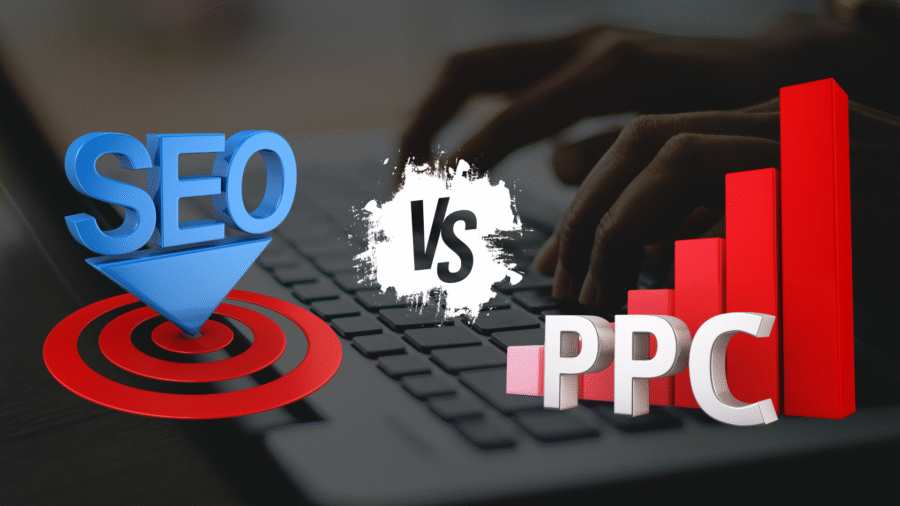If you’re thinking of cutting corners to get to the top of Google, think again. Black hat SEO might look tempting – quick gains, fast rankings, instant clicks – but it’s a ticking time bomb. What seems like a shortcut today can crash your rankings tomorrow.
Google isn’t slow when it comes to cracking down on shady tactics, and once you’re on their radar, crawling out of that hole is no small task.
Let’s break down the black hat tactics that could leave your website buried on page 10, and why sticking to the right path matters more than ever.
What is Black Hat SEO?
Black Hat SEO involves using unethical or manipulative methods to try and boost a website’s ranking on search engines. These tactics go against search engine rules and can result in penalties or even getting completely removed from search results.
Common black hat methods include keyword stuffing, cloaking, link farming, and using hidden text or links. They might bring quick results at first, but in the long run, they can seriously harm a site’s reputation and search visibility.
Why Do People Use Black Hat SEO?
The reasons are simple:
- They want fast results.
- They don’t want to put in consistent effort.
- They think Google won’t catch them.
But Google’s smarter than that. It updates its algorithms frequently, and black hat strategies that might work one week could crash your rankings the next.
Avoid These Black Hat SEO Techniques Before It’s Too Late
1. Keyword Stuffing
You’ve seen those pages that mention the same word 30 times in a paragraph? That’s keyword stuffing. Here’s why it’s a bad idea:
- Makes content unreadable for actual people
- Google’s algorithm catches on fast
- Pages get flagged for spam
Real tip: Use keywords naturally. Make it sound natural, not robotic.
2. Hidden Text or Links
This is the digital version of writing with invisible ink. People can’t see it, but search engines can. Examples include:
- White text on white background
- CSS-hidden content
- Using super small fonts to sneak in keywords or links
It’s shady and outdated. Google flags this fast, and your site could get penalized for trying to deceive.
3. Cloaking
Cloaking means showing one version of a page to search engines and another to users. It’s like wearing a disguise to fool Google.
For example: Search engines see a page about “wedding venues,” but users see casino ads. Total mismatch.
It’s a major violation, and Google takes this one seriously. Expect ranking drops or full removal from results.
4. Buying Links
You might think buying backlinks is a quick fix to rank higher. And yes, links matter. But the way you earn them is what really counts.
When you pay for a bunch of spammy backlinks from random sites, you’re playing with fire. Google’s link systems are stricter and more intelligent than ever before.
What happens?
- Your site gets flagged for unnatural link patterns
- You lose all credibility in Google’s eyes
- Recovery? Painful, slow, and expensive
5. Duplicate Content
Copy-pasting the same text across multiple pages or sites doesn’t fool anyone – not users, not search engines.
Why it’s a problem:
- It makes it unclear to search engines which page should be ranked.
- Watered-down relevance
- Risk of ranking none of the pages at all
6. Clickbait and Misleading Redirects
Ever clicked a link expecting one thing and landed somewhere completely different? That’s not just annoying – it’s a black hat tactic.
Sending users to unrelated or misleading content breaks their trust. Google’s algorithm flags this as a violation.
7. Spun Content
Copy, spin, publish. That’s the formula behind spun content. It’s basically taking an existing article, tweaking the words just enough to seem different, and slapping it on your blog. It doesn’t offer value. It doesn’t help readers. And it definitely won’t boost your rankings over time.
What spun content often looks like:
“This footwear is exceptional for human’s legs which need footwear in the morning situations.”
Why it fails:
- Low originality
- Poor readability
- No authority or depth
Google rewards quality, not cheap tricks.
8. Content Automation
Some sites use bots to churn out hundreds of low-quality articles loaded with keywords. They don’t offer real value and Google knows.
Poorly written, automated content:
- Fails to keep users on the page
- Sends bounce rates through the roof
- Tells search engines your site isn’t helpful
9. Abusing Structured Data Markup
Some sites abuse schema markup by tagging fake reviews or irrelevant information to manipulate search snippets.
You might temporarily get rich snippets, but once Google audits your schema, you could lose more than just the fancy display – you could face penalties.
10. Doorway Pages: SEO Bait with No Value
Doorway pages are designed to target specific keywords and then direct users to a different section of your website.
These pages usually offer little content and just serve as a bridge. Google doesn’t like being tricked, and neither do users.
How RD Digital Keeps It Clean and Results-Driven?
RD Digital doesn’t gamble with your website’s future. Every step is rooted in practices that Google respects. Instead of chasing short-term boosts that fade fast, we focus on:
- Strong, human-written content
- Legit backlink strategies that build long-term trust
- SEO audits that clean up existing issues
- On-page SEO that uses a clear layout and thoughtfully placed keywords
- Fast-loading pages that keep users engaged
We’ve seen the damage black hat techniques can cause – and we make sure you stay far from that line. We believes in building something that lasts.
No shortcuts. Just strategy, clarity, and consistent results.
How These Tricks Backfire
Let’s break it down. Here’s what can happen if you mess with Black Hat SEO:
Google Penalties:
- Manual penalties from the search team
- Algorithmic penalties like Panda or Penguin
- Complete removal from search listings
Traffic Drops:
- Vanishing from top results
- No visibility means no clicks, no leads, no sales
Damaged Reputation:
- Spammy pages hurt brand trust
- Recovery takes months and sometimes a complete website overhaul
Quick Tip: How to Spot a Black Hat SEO Service
Be cautious if someone promises:
- First-page rankings in 7 days
- Thousands of backlinks overnight
- Guaranteed traffic from search engines
These are red flags. Good SEO takes time, strategy, and content that actually helps people.
Shortcuts in SEO come with a cost. Black hat tactics might give you a bump at first, but it won’t last and it’s not worth the crash when Google catches up. Focus on strategies that work long term. Build content which people actually want to read. Stay clear of shady links and fake tricks.
Because once Google hits the brakes on your site, bouncing back is a long, uphill climb.
And if you’re looking for a team that plays it smart? RD Digital’s right here.
Play smart. Rank right. Leave the black hat behind.



